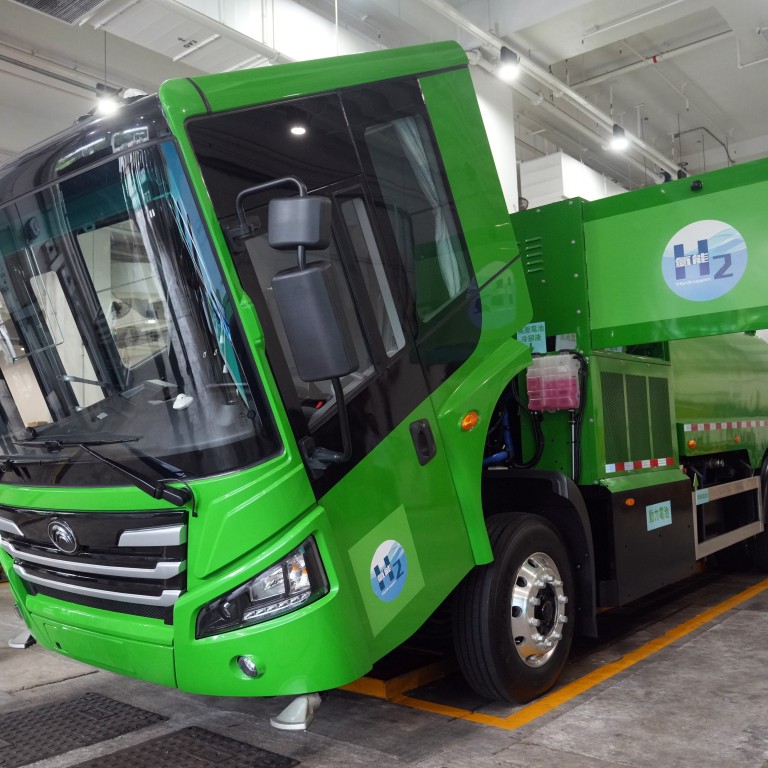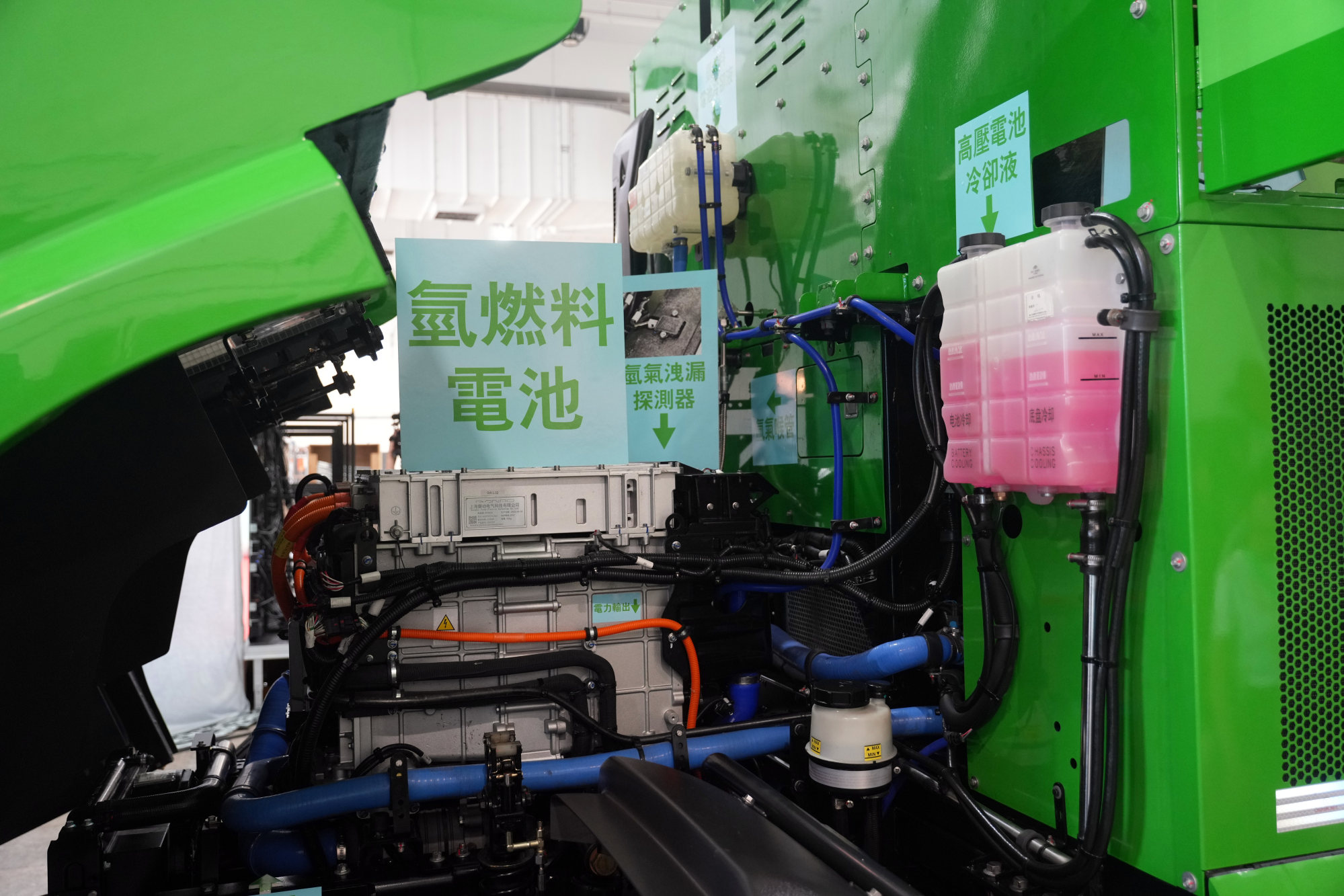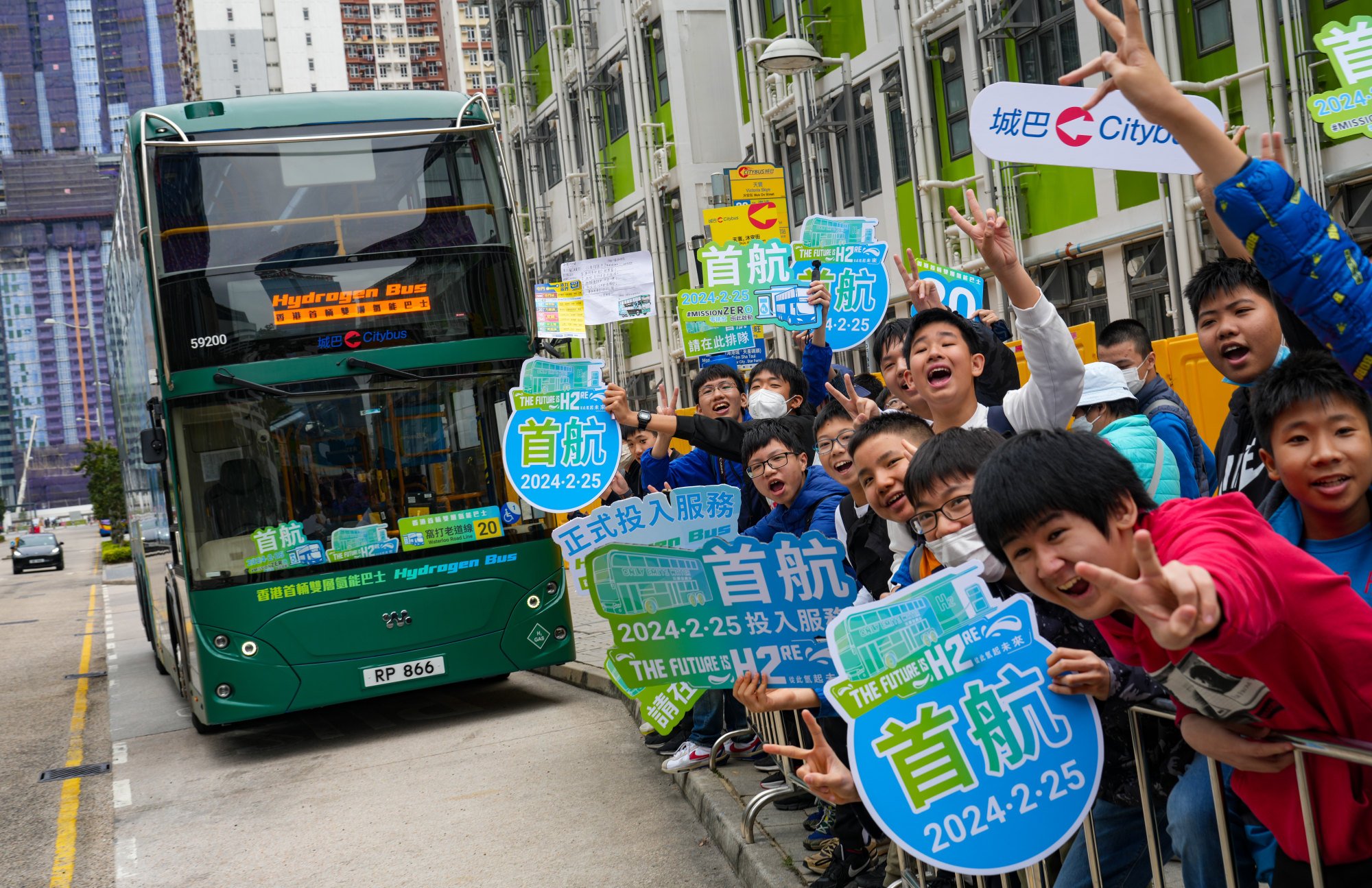
Hong Kong to be mainland China’s showcase for hydrogen vehicles in green energy push
- New plans will spur innovation, legalise widespread use of hydrogen fuel by 2025 to help city cut carbon emissions, environment chief says
Hong Kong will seek to become mainland China’s showcase for developing hydrogen under new plans that will legalise the widespread use of the energy source for vehicles by next year in a push to cut carbon emissions, the city’s environment chief has said.
“Our country already has a strong foundation in hydrogen development, which is a key component of our national energy sources,” Secretary for Environment and Ecology Tse Chin-wan told a press briefing.
“If Hong Kong can seize this opportunity, the city will progress towards its goal of carbon neutrality, develop new quality products and maintain Hong Kong’s international competitiveness.”
Tse said the city should also leverage its unique advantages of “enjoying the strong support of the motherland” while being “closely connected to the world” so Hong Kong could be a touchstone that demonstrated the country’s development of hydrogen energy.

“It’s a little unrealistic for Hong Kong to pursue hydrogen development and usage on its own,” Tse said. “Developments on the mainland have already established a foundation and certain standards in terms of production, storage, refuelling, fuel cells and system developments.”
He noted that, under the hydrogen energy strategy, the government would consider amending the Gas Safety Ordinance to distinguish hydrogen from other dangerous goods.
The production, storage and transport of any gaseous, explosive or flammable substances are prohibited unless otherwise warranted. It is also illegal for hydrogen vehicles to use tunnels.
Tse said authorities would also submit legislative amendment proposals to the legislature in the first half of 2025 and establish different hydrogen energy certification types based on international standards before 2027.
Under the strategy published on Monday, city authorities will promote hydrogen technology through four objectives – improving regulations, setting standards, facilitating the market and advancing prudently.
Tse said authorities would expand an interdepartmental working group’s roles and functions to support talent training and infrastructure development for hydrogen applications and to regularly review implementation progress and update the strategy.
The team is responsible for examining and approving trial projects, enhancing guidelines and standards of applications, advising on the pathway for wider use and commercialisation of various schemes and helping to promote applications.
Formed in 2022, the team comprises officials from 14 government bureaus and departments, such as the Environment and Ecology Bureau, Transport and Logistics Bureau and the Architectural Services Department.
Environmental authorities explained that hydrogen energy was a process of converting the gas into mechanical or electrical energy. There are currently three ways of obtaining it, deploying grey, blue and green technologies.
While grey and blue hydrogen is produced from fossil fuels, green hydrogen is produced from renewable energy sources with no carbon emissions.
Tse said that because green hydrogen was expensive, the government had reserved flexibility for the scale and speed of development when formulating its strategy, to avoid compromising economic benefits.
Citybus’ hydrogen double-decker started operations in February, with the company announcing that it would collaborate with Towngas to build a hydrogen refuelling station at its Wan Chai depot by the end of the year. It also planned to launch at least four more hydrogen buses within the same time frame.
Beijing published a white paper in 2020 to promote the development of a hydrogen energy industry and related technologies, and increase the proportion of hydrogen in the nation’s fuel mix.

Since May last year, Chinese President Xi Jinping has visited at least three provinces and cities, including Sichuan, Jiangxi and Chongqing, to push for the development of the industry. In a speech delivered in Chongqing in April, he stressed the importance of increasing security in key areas such as energy and speeding up the construction of new energy systems.
Soon after the strategy was released, Citybus said it would try using its hydrogen bus on cross-harbour routes in the coming weeks.
“With a well-defined road map and regulatory framework in place, taking learning from established operations on the mainland and other countries, supported by relevant hydrogen funding and subsidies, we believe Hong Kong’s hydrogen economy can be developed at a rapid pace,” a spokesman said.
Public policy think tank Civic Exchange said it welcomed the strategy, adding that the government’s participation was important in building public confidence in safety concerns over hydrogen vehicles.
“The government’s emphasis on market development is crucial,” said Lawrence Iu Chun-yip, its executive director. “[The strategy] will help identify entry points and guide business decisions.”
However, he noted that because hydrogen was still more expensive than conventional fuel sources such as diesel, authorities would need “more concrete” actions to help create a commercially viable market and widespread deployment of the technology, such as doing more small trials and conducting demand forecasts for the short, medium and long term.
